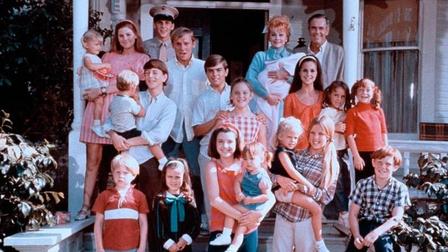I saw my firstborn for the first time in seven years yesterday. Twenty years ago next Monday, I gave her up for adoption. The night in the hospital was the only night I’ve ever spent with her. For the last two years, she didn’t want contact with me; I’m not even sure who told her that she has a half-sister now. And the thing that strikes me is that, just after the last time I saw her, I saw and hated The Kids Are Alright. While boiling with anticipation that I would see her, I watched Spider-Man: Homecoming, and after seeing her, I watched Wonder Woman again. And it’s surprising that all three of those films involved non-traditional families, because they’re so rare in movies compared to how common they are in real life.
Obviously, in a world where around half of marriages end in divorce, there are a lot of kids out there not living with both their birth parents. Then you get things like my daughter and her adoptive parents. Or me and my single mother, after Dad died. Or my other two kids and their unmarried parents. But one of the only movie kids I can think of with a step-sibling is Cher from Clueless, and another is Cinderella. Half-siblings are pretty uncommon, too. Mostly what you get is the Disney Parade of Orphans.
I’m not saying I didn’t know anyone when I was growing up who lived with both their birth parents. It did happen. And even a lot of us who didn’t lived with a single parent; to my knowledge, my mother’s only been on a handful of dates since 1983, and I don’t know about any of them because she told me directly. But it is strange, when you think about it, that I hardly knew anyone growing up whose parents were dead, whereas that seems to be the most common cause of single parenthood in American media. These days, when the parents aren’t married for whatever reason, that’s likely to be what the movie is about—unless it’s a kids’ movie about an orphan, which is even weirder.
There are a lot of notable ways that families on TV and in movies don’t resemble families in real life. I mean, the Bradys could afford a live-in maid! But the fact that so many families in our media are perfect nuclear families may be the strangest of them. I admit that divorce in my own family has been a fact of life since my great-grandmother walked out on her husband in a time when that was absolutely shocking, but while it was relatively unusual for people even my dad’s age to grow up with divorced parents, as he did, by the time you get to my age, it’s really, really not. Except for families in our stories.
Famously, Sesame Street considered doing a string of episodes wherein Mr. Snuffleupagus’s parents divorced, and they didn’t do it because it was so traumatic to their young audience. (And unlike the death of Mr. Hooper, it wasn’t shaped by real-world events; puppets’ home lives are as stable as the puppeteer decides they are.) That’s fine; I can understand that. And putting a divorce in a show where characters start out appearing to have a healthy relationship can be jarring. But even those marriages that seem absolutely toxic, where husband and wife don’t seem to like each other at all, never end in divorce unless that’s What The Story Is About. And couples seldom start divorced.
I don’t have statistics here on the number of children in the US today growing up in a household with two married opposite-sex birth parents versus literally every other configuration possible. I freely admit it’s got to be a lot of them. But don’t you ever find it a little bit strange that it still seems to be the near-universal configuration for movie families? I’m willing to bet all three of my kids will be able to have a conversation on the subject one of these days.
Help support my family; contribute to my Patreon!

